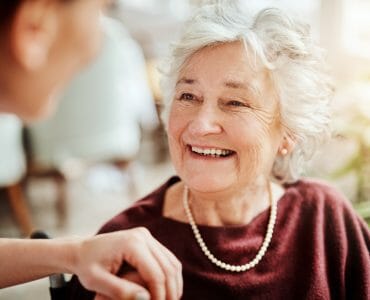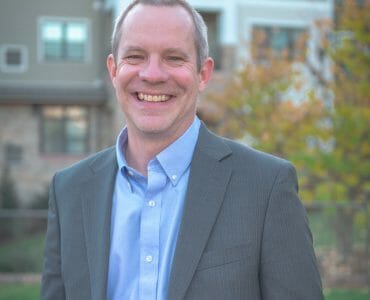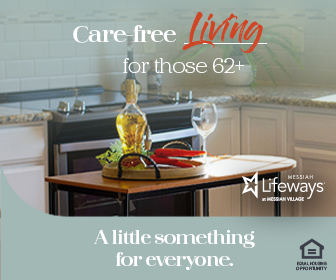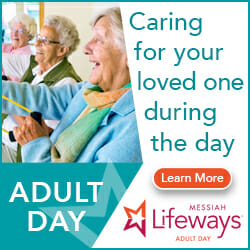Drug overdoses and deaths among teens in the U.S. is a frightening reality. At first you may presume drugs like heroine, meth, or crack cocaine are the main culprits. While those drugs get a bulk of the attention, the truth is that prescription and even over-the-counter medications are as deadly and habit-forming, and in some cases, easier than some of the illicit street drugs for teenagers and young adults to get their hands on.
So how are they getting these drugs? The answer may surprise you. In a recent article written by Dr. Linda Rhodes for Pennlive.com, “Are grandma’s medicine cabinet and teens a deadly duo?”, she discusses the epidemic of prescription drug abuse by teenagers and young adults who steal these drugs from unsuspecting family, particularly grandparents. She writes…
“One out of four teens report having abused using a prescription drug in their lifetime and three out of four will tell you they got those drugs from home and friends. ….
So, while parents fear their teens getting a hold of street drugs, their kids are simply turning to the family medicine cabinet while mom and dad are right down the hall. Grandparents – an age group known to take multiple prescriptions and over-the-counter drugs – can become an easy, unsuspecting supply source, especially if the medicine cabinet is stocked with pain pills like Vicodin and OxyContin, anti-anxiety drugs like Xanax, sleeping pills like Ambien, diuretics like Lasix (teens will use them to lose weight) and over-the-counter drugs that contain pseudoephedrine like Sudafed and common cold medicines.
Taking any of these drugs too frequently or too much and combining them with alcohol at parties can spell disaster. Three thousand young adults died from Rx drug overdose in 2010 – a stunning 250% increase from 1999 – that’s 8 people a day.
The spike in teen prescription drug abuse – a 33 percent increase over the past five years – can be attributed to a range of factors: kids seeing commercials on the benefits of medications, the belief among teens that if a doctor prescribes a drug and grandma can handle it, then it must be safe, the lack of vigilance and warnings among parents over prescription drugs as opposed to street drugs, and the easy accessibility of the family medicine cabinet.
Teens also are drawn to the drugs because they’re “free” and they don’t have to worry about getting caught by police with legal consequences like they do with marijuana or cocaine. Combine all of this with a typical teen’s curiosity, growing pains and risk-taking behaviors and we, as a nation, have a new drug crisis on our hands.” (Click here to read the entire article)
According to The American Society of Consultant Pharmacists (ASCP), on average, individuals 65 to 69 years old take nearly 14 prescriptions per year, individuals aged 80 to 84 take an average of 18 prescriptions per year. Take those numbers, and then multiply that by the number of people over the age of 65. This provides ample opportunity for grandchildren and other young adult family members or friends to rifle through and either take or sell their medications.
As a parent it’s hard for me to fathom my children or their friends would do such a thing, but I would never dismiss the possibility. So just imagine a loving grandparent who adores their teenage grandchild; they might never suspect or imagine such a thing could happen. But as adolescence and young adulthood set in, the desire to gain that high, fit in or make some money becomes very alluring, making grandma’s medicine cabinet a prime cache.
Dr. Rhodes goes on to give suggestions how to deal with these issues and lists some great resources, which I’ll attach to the end of this blog. She also cites other professionals:
“Dr. Jane Greer, a family therapist who advises the Partnership at Drugfree.org, urges grandparents not to be judgmental or critical in their approach but rather give teens the space to explain themselves. If you listen rather than lecture, you may learn the underlying circumstances and reasons she’s turning to prescription drugs.
Dr. Susan Bartell, a psychologist on parenting who also advises the Partnership, would further counsel you to tell your granddaughter that her parents need to know: “Offer to talk to her parents with her and role play how you’ll tell them. Explain to your grandchild that ‘I love you and I want you to be safe and that’s most important.’ If I don’t tell your mom or dad there’s a chance you could get in trouble or get hurt or die and I’d be responsible for that.”
Remember to be vigilant and maintain close records of your medications. Don’t disregard missing medications as you misplacing them or thinking that you’ve already taken that dose. Also keep your medication in a safe and secure place. And to reiterate Dr. Rhodes, clear and constructive communication is key to broach this very difficult subject. The abuse, overdose or death of a young family member could be an accident waiting to happen, but it is an accident that you can help prevent from ever occurring.
Dr. Rhodes also provides a Grandparent Tool Box in her article –
- “Grandparent’s Guide” by the Partnership at Drugfree.org.
- Fact Sheet on Prescription Drugs and Teens
- “Not in My Home” checklist to prevent teens from abusing prescription and over-the-counter drugs.
- National Institute on Drug Abuse: Tip Sheets and excellent publications for parents, teachers & teens or call 877-643-2644.
- Parents Toll-Free Helpline: To speak to a licensed social worker about your child’s drug use and drinking, call 855-378-4373.
Dr. Linda Rhodes is a former Secretary of Aging and author of The Essential Guide to Caring for Aging Parents (Penguin 2012) and can be reached at rhodescaregiving@gmail.com.
I have also included a link to US Food and Drug Administration (FDA) on how to properly dispose of unused medications.
From our friends in the UK, Rehab 4 Alcoholism is a helpline for people experiencing addiction. This helpline aims to stop addiction before it becomes too late. www.rehab4alcoholism.com Tel: 0800 111 4108






